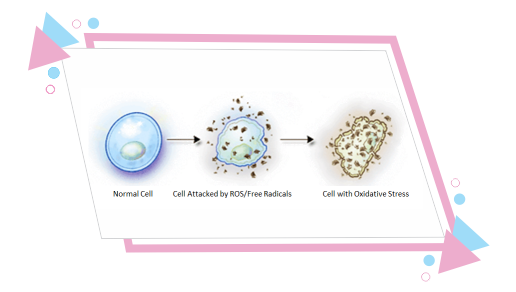Sperm DNA Fragmentation Test
Services / Sperm DNA Fragmentation Test

Sperm DNA Fragmentation Test
A male factor is associated with almost 50% of all cases of infertility. A semen analysis can measure the sperm motility, size, shape and concentration. This has been considered as the golden standard test for determining Men’s Fertility. But this test does not give any information about the genetic makeup of the sperm. The genetic constitution of the sperm is an essential factor for the normal development of the embryo. So, high-level damage of the sperm DNA might represent the cause of Male Infertility which cannot be determined by conventional tests.
Sperm DNA and Sperm Parameters
Sperm DNA Fragmentation is reasonably higher in infertile men and while men with poor semen parameters will probably have High Sperm DNA Fragmentation. It is also found in men with normal semen parameter who might be infertile for unknown reasons.
Sperm DNA and Embryo Development:
Embryos that are derived from sperms that have highly fragmented DNA have a poor prognosis. Highly fragmented DNA will probably affect the embryos once the parental genome is switched on, that is from day 2 of growth and it also impairs the growth of the subsequent blastocyst. Some evidence suggests that DNA Fragmentation may result in cell degeneration and gene mutations, which leads to arrested growth of the embryos, miscarriage, abnormalities in the offsprings and high vulnerability to childhood cancers.
Sperm DNA, Pregnancy and Miscarriage:
When the male partner has a high percentage of sperms that have fragmented DNA, studies suggest that it would lead to a reduced chance of successful pregnancies. A review article suggested that current DNA Fragmentation Tests have restricted the capacity to predict the chance of pregnancy following assisted conception treatments. However, many large studies and reviews suggest that a high per cent of sperm with fragmented DNA is associated with reduced natural pregnancy rates as well as assisted conception pregnancy rates and live birth rates. Sperm with a higher percentage of fragmented DNA leads to higher miscarriage rates. Overall results of these studies suggest that the value of testing for Sperm DNA Fragmentation can be used to find possible reasons for unexplained infertility, failed IVF Treatment cycles or recurrent miscarriage.
Causes of Sperm DNA Fragmentation:
One of the major causative agents for Sperm DNA Fragmentation is oxidative stress due to surplus production of reactive oxygen species. There are other factors which cause Sperm DNA Fragmentation. They are
◆ Defective Sperm Chromatin Packaging
◆ Defective DNA Repair Mechanisms
◆ Abnormalities in the Regulation of Programmed Cell Death (apoptosis).
There are several other external factors which may be the cause of DNA fragmentation. They are listed below.
Factors Influencing Sperm DNA Fragmentation:
◆ Infection
◆ High Fever
◆ Advanced Age
◆ Obesity
◆ Leucocytospermia
◆ Elevated Testicular Temperature
◆ Poor Diet
◆ Varicocele
◆ Drug Use
◆ Cigarette Smoking
◆ Exposure to Environmental and Occupational Pollutants
Indications for Male Patients Who will Benefit from the DNA Fragmentation Test:
◆ Unexplained Infertility
◆ Poor Blastocyst Development
◆ Arrested Embryo Development
◆ Recurrent Miscarriage in Partner
◆ Multiple Failed IVF/ICSI Treatment
◆ Advanced Age
◆ Varicocele
◆ Poor Semen Exposure to Harmful Substances
What is the DNA Fragmentation Test?
The DNA Fragmentation Test is the sperm chromatin structure assay (SCSA). It is an effective way to measure the damage in the DNA in thousands of sperms. This test measures the susceptibility of sperm DNA to denaturation (disruption and destruction of protein structures) when it is exposed to heat or acid. The sperms are stained with a fluorescent probe that interacts with the DNA. The fluorescence signal changes when the DNA is fragmented. This signal can be measured using a flow cytometer. Over the last 35 years, the SCSA test has been developed using human and animal models. It is one of the most robust tests available for sperm DNA fragmentation. It is standardized and validated by CLIA.
Test Report:
The test uses two indicators for the assessment of DNA Damage.
1. DNA fragmentation Index (%DFI is the percentage of sperm with DNA damage)
Results are categorized into four:
≤15% DFI = Excellent to good DNA integrity
>15 <25% DFI = Good to fair DNA integrity
>25 <50% DFI = Fair to poor DNA integrity
≥50% DFI = Very poor DNA integrity
2. High DNA Stainability (HDS):
HDS is the percentage of sperm with immature chromatin and the abnormal ratio of histone to protamine. HDS levels that are >25% are considered to be negative for pregnancy outcomes.
Treatment:
Certain causes of DNA Fragmentation cannot be treated. But if the damage is due to oxidative stress, then a change in the lifestyle and diet designed to protect against oxidative stress may help reduce the levels of DNA damage.
Treatment of infection with antibiotics may be useful in reducing sperm DNA damage. But it is important to clearly identify the bacteria before antibiotics are prescribed.
Varicocele is the main cause for Male Infertility and it is associated with damage of sperm DNA. There is evidence showing that repair varicocele might improve the integrity of the sperm DNA. Initiatives to reduce the level of fragmentation can be assessed by taking a second test at least three months after the first.
Reports suggest that DNA damage occurs at post-testicular level so that testicular sperms might have a healthier DNA integrity than the ejaculated sperm.
Advantages of a Sperm DNA Fragmentation Test:
◆ Provides a reliable analysis of sperm DNA integrity which may help to identify men who are at risk of failing to initiate a healthy ongoing pregnancy.
◆ Sperm DNA integrity may help in the clinical diagnosis, management and treatment of Male Infertility.
◆ Provides prognostic value in assessing the outcome of assisted conception treatment.
◆ Guides the doctors as to whether sperm donation may be appropriate.
◆ Helps couples make an informed choice regarding their course of treatment.